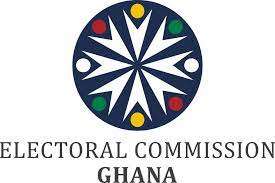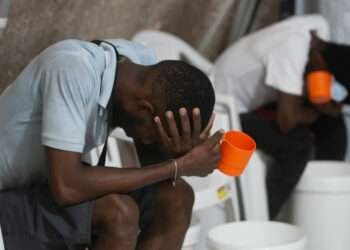The Electoral Commission (EC) according to its planned activities, has established October 3, 2023 as the date for this year’s District Level Election (DLE).
However, it stated that the proposed new Constitutional Instrument (C.I.)’s acceptance by Parliament could cause the DLE date to shift. This was announced by Samuel Tettey, the Deputy Chairman of the EC in-charge of Operations, at a forum with the title “2023 District Level Election: The Role of Stakeholders and Matters Arisen.”
The event, which was sponsored by the Centre for Local Governance Advocacy (CLGA), was intended to inform participants about the DLE and to explore strategies to increase voter turnout, which has historically been at historically low levels. It also proposed that Assembly and Unit Committee members will be chosen by the DLE.
Mr. Tettey stated during the event that the new C.I., which sought to make the Ghana Card the only document used for identification upon registration, had not yet been placed before Parliament.
When approved, he claimed, the new C.I. would control the nation’s ongoing voter registration. “If this new C.I. goes through, the commission will undertake the continuous voter registration exercise at the district level,” he said.
In addition, he stated that the commission’s internal operations, such as hiring people, logistics, and other election administration procedures, may also warrant a change in the DLE’s scheduled date.
In contrast to the Presidential and Parliamentary elections, he claimed, candidates for the DLE were not required to pay a filing fee or deposit. In accordance with his declaration, the EC would outline the election procedures via a number of public and voter education programs on the DLE.
Therefore, Mr. Tettey urged all parties involved to support the EC by carrying out their responsibilities in order to guarantee the holding of a free, fair, and transparent election.
Voter Turnout
Dr. Eric Oduro Osae, a local governance expert, requested for the DLE to be politicized in order to increase voter turnout.
According to him, section six of the Local Governance Act 2016 (Act 936) as amended by Act 940 said that DLEs were to be held every four years, at least six months before the Presidential and Parliamentary elections.
He mentioned that eight consecutive local level elections have been held in Ghana since 1988 in an effort to increase public involvement.
Despite the constitutional guarantee of the right to vote, he claimed, there had been severe voter indifference in local government elections, which had resulted in poor turnout.
“Turnout for DLE have been declining from 59.3 per cent in 1988/89 to 33.6 per cent in 2019 as against a national turnout of 2020 general election of about 78.89 per cent
“Apart from the 59.3 per cent turnout during the PNDC military rule we have never hit the 50 per cent turnout mark since we entered constitutional rule under civilian elected governments from 1993.”
Dr. Eric Oduro Osae
Dr. Osae suggested, among other things, amending article 55(3) to permit political parties to sponsor candidates, increasing public awareness of the DLE, and developing strategies to increase women and youth participation in order to increase voter turnout for this year’s DLE.
In a speech read on his behalf, the Minister of Local Government and Rural Development, Dan Botwe, stated that the ministry would engage with the media to provide proper coverage on the DLE and that an Accra National Media Brief would be held to kick off the awareness raising.
In order to ensure a successful election, he reaffirmed the ministry’s commitment to strengthening decentralization and working with stakeholders.
For her part, CLGA’s Deputy Executive Director Gillian Naadu Tetteh urged greater engagement from women and people with disabilities by encouraging them to run for office.
READ ALSO: EC Insists On Using Ghana Card For Elections





















